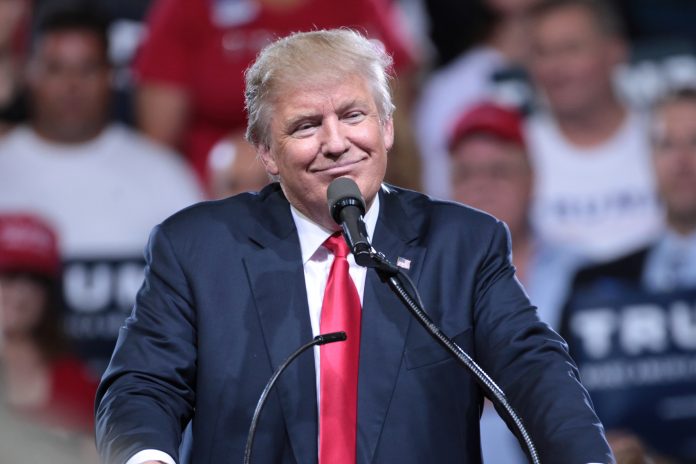
Sophia Gonzalez
In the age of social media, accurate and unbiased reporting is becoming increasingly difficult to distinguish from untrustworthy information. However, when representatives from the government are reporting on current events or on “factual” information, there should be no question that what they’re saying is accurate.
Why shouldn’t it be accurate? They have the resources and the personnel to fact check information, so there should be no question that when a government official, such as the president, shares information through social media, the information presented should be revised by their legal team.
Recently, President Donald Trump received widespread criticism after tweeting controversial messages regarding the death toll in Puerto Rico following the devastation caused by Hurricane Maria on Sept. 20, 2017. In his tweets, he said that “3000 people did not die from the hurricane,” in response to a study conducted by George Washington University. The study found that there were an additional 2,975 deaths in result of the hurricane and its aftermath.
The reasoning behind Trump’s statement is that when he visited, Puerto Rico “had anywhere from 6 to 18 deaths.”
The problem with what Trump is articulating is that he is arguing against a credible source without having any scholarly support. Also, when he’s talking about the death count, he is neglecting important pieces of information that would gravely affect the mortality rate on the island. The initial number of deaths was indeed 6 to 18 people. However, this was reported directly after the hurricane. During this time, the island’s resources and power were devastated, so having an accurate count of how many people were affected by the immediate aftermath of the hurricane is hard to gauge.
Trump also ignores the fact that most of the deaths that occured are a result of damage caused by the hurricane. After Maria, it took the power company in Puerto Rico eleven months to restore power to the island, and even now, power outages are common. The death toll climbed due to lack of functionality at hospitals, lack of access of resources, and the spreading of diseases after the hurricane.
What’s dangerous about the manner in which Trump is presenting his arguments is the fact that even the information that is being put out by other parties can be questioned. The mortality rate in Puerto Rico after the hurricane, even now, cannot be ascertained unequivocally, so people who are already likely to believe what the president is saying will foreseeably agree more with Trump, despite the president’s baseless claims.
He has no information to corroborate his statements other than his own personal bias, but he’s releasing the information as if it were fact. Even more alarming is the fact that in his tweets he says, “This was done by the Democrats in order to make me look as bad as possible.”
By “this,” he means exaggerating the death toll.
This piece of information is disturbing because that statement alone can cause tensions between the two political parties despite the fact that the George Washington University affirms that there were no parties affiliated with the study.
The reason why information released to social media should be monitored is to prevent the spread of misinformation. The president of the United States should be a credible source, and the information that he puts out needs to be factually correct, or at least corroborated by credible sources. The fact that Trump spoke out against the death toll in Puerto Rico without having any legitimate support to back him up is detrimental to Puerto Rico because they are still in need of help and are actually still suffering from the aftermath of Maria.
Although Rosello, the governor of Puerto Rico, didn’t directly deny Trump’s statements, I believe that his response accurately reflects the problem with Trump’s statements. Rosello said, “Neither the people of Puerto Rico nor the victims deserve their pain to be questioned.”







